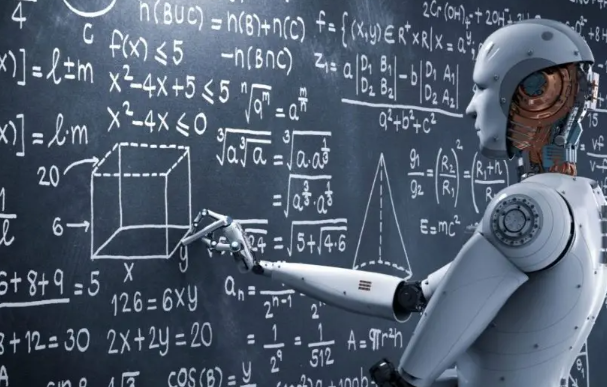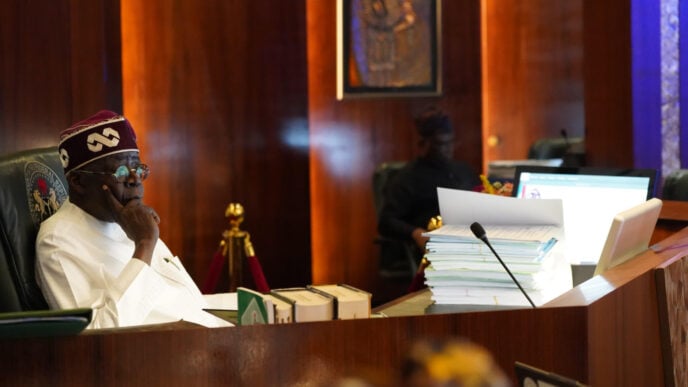If you follow news about education in Nigeria, chances are you have come across something about AI and education recently. The conversation is everywhere: major media, classrooms, staff offices and all over social media.
There’s a growing advocacy movement insisting that Nigerian education must not fall behind in integrating AI into all aspects of learning, from curriculum design to instruction and assessment. The argument is that since AI is expected to play a central role in the new industrial revolution, students must be equipped to use and work with it. As OpenAI, the organisation behind ChatGPT, puts it, the goal is to prepare an “AI-ready workforce”.
Across the board, multiple stakeholders—educators, policymakers, and tech enthusiasts—are pushing for AI integration. The arguments seem to be reaching the right ears. The Federal Government, through the Federal Ministry of Education, has been speaking more frequently about plans to incorporate AI and other digital technologies into the education system. For instance, during the International Day of Education 2025, the Minister of Education spoke about a strategic roadmap to ensure the responsible integration of AI into Nigerian education.
A quick look into public discussions about AI and education in Nigeria, however, shows that the tone is largely optimistic. There is the sentiment that seems to paint AI as the missing piece that could finally solve our educational challenges.
Advertisement
But is this the conversation we should be having? Does our public conversation about this issue need more nuance than the broad, one-directional “AI-for-education” campaign we seem to be currently having?
Yes, we are entering an increasingly AI-driven world. And yes, it makes sense that our education system should prepare students to function effectively in it. But it is becoming clearer that AI comes with serious downsides too. There are many issues to consider when it comes to AI integrations into social systems.
Alongside the flourishing global embrace of AI are also growing concerns. One major concern is its impact on the cognitive development of students. Psychologists warn that AI delegation can easily grow into AI dependency. By outsourcing mental effort to AI tools, students may lose the cognitive friction necessary for developing problem-solving skills and critical thinking. Over time, this disengagement can lead to a kind of mental disempowerment that researchers call Technology-Induced Cognitive Diminishment (TICD). A recent MIT study found that people who rely heavily on ChatGPT showed the lowest brain engagement among the study participants, performing worse on neural, linguistic, and behavioural measures.
Advertisement
There’s also the problem of AI hallucination, where AI systems generate false or misleading information. We’ve already seen how this can play out in real life: for example, Deloitte Australia had to refund the Australian government after an AI-assisted report was found to contain numerous errors.
Another issue to consider is equity. Access to AI depends on access to electricity, internet, and digital infrastructure, all of which remain unequally distributed across Nigeria’s states and regions. Without addressing these disparities, the integration of AI risks widening the education gap in Nigeria even further.
Beyond these global concerns are also local ones. The data models behind most large language models (LLMs) are overwhelmingly Western. Many AI systems today still lack a deep understanding of African contexts, cultures, and values. To centre them in our education system without adaptation would undermine the efforts to contextualise African education aligned with Africa’s Agenda 2063 that envisions an education system rooted in African realities.
All these issues have received far less attention in our AI advocacy, making it clear that our national conversation about AI in education is far too one-sided. We’re mostly asking how to integrate AI into Nigerian schools, but the real question should be how to use AI in ways that maximise its benefits and minimise its harms. For instance, our focus shouldn’t only be on how teachers can use AI to design lessons and curricula or automate grading. We should also be asking how they can do so while protecting student data, maintaining local relevance, and preserving indigenous knowledge.
Advertisement
Our conversations around AI and Nigerian education need more nuance, more context and more criticality. How do we ensure students still train their brains to think deeply, even as AI tools become more common? How do we adapt AI systems to reflect local realities and cultural contexts? How can teachers use AI responsibly without compromising data privacy or intellectual independence? These and more are the conversations we should be having.
Oluwatoyin is a STEM education doctoral researcher. She writes from Nigeria and the United States. She can be reached at [email protected] or on LinkedIn here
Views expressed by contributors are strictly personal and not of TheCable.




